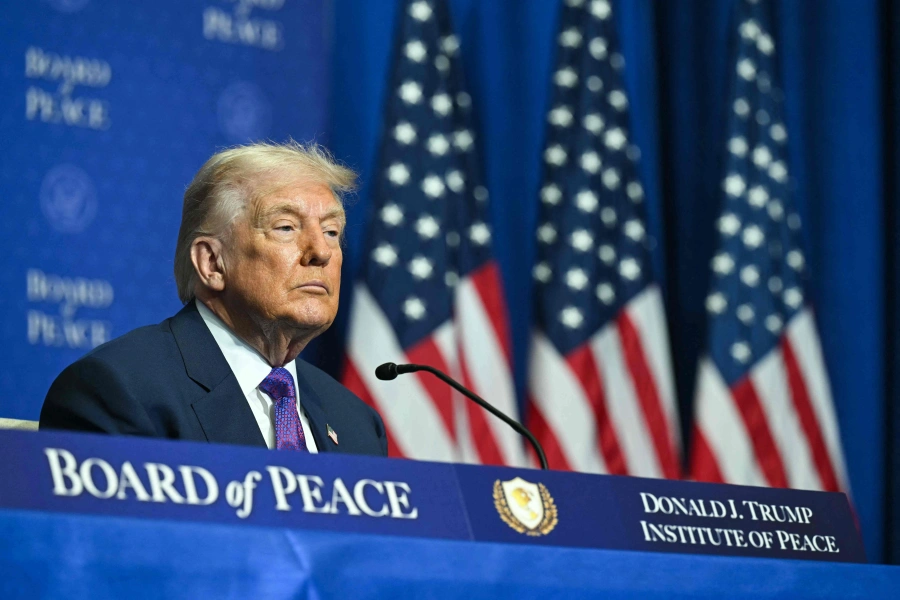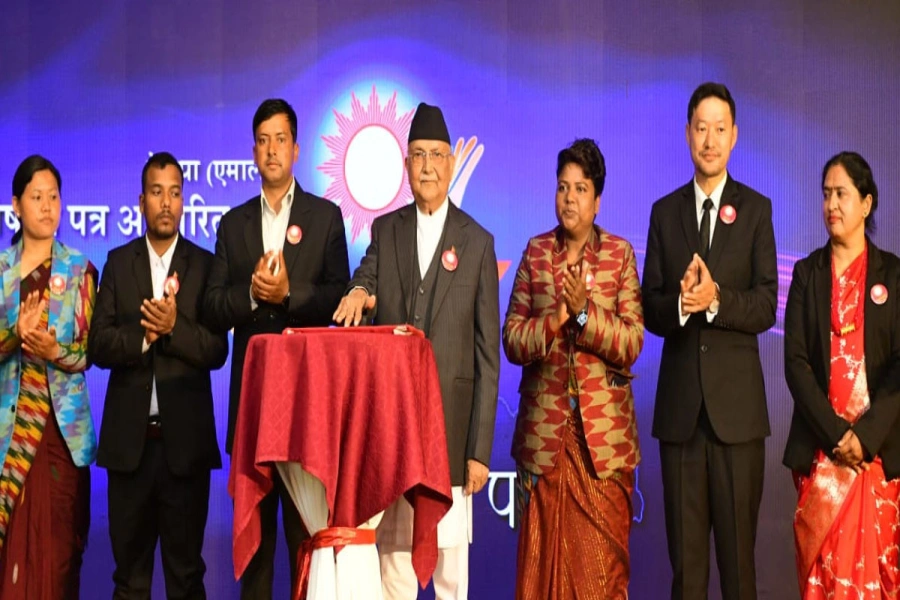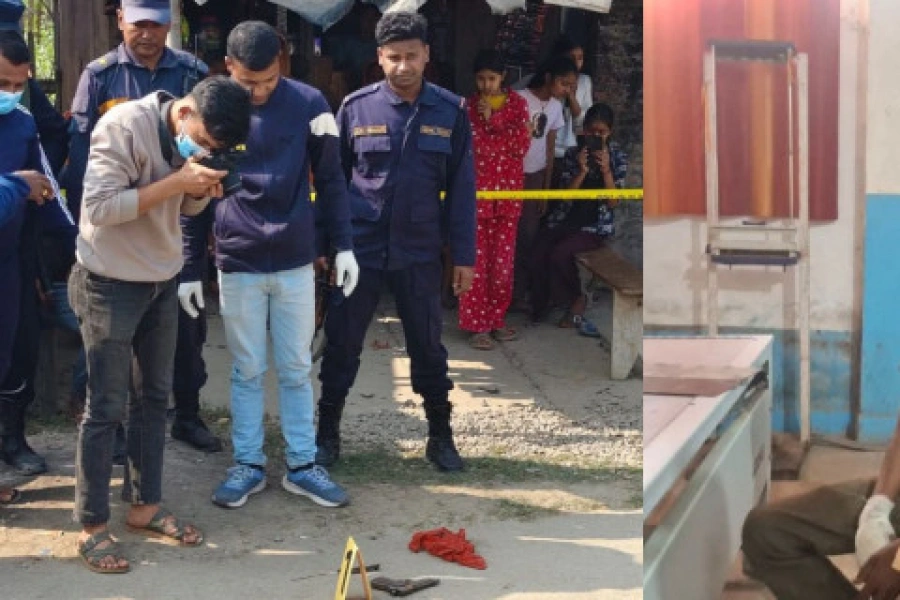KATHMANDU, July 14: There were only 179 lawmakers present in the House of Representatives (HoR) on June 30 when there was an important agenda to pass three bills: the Economic Bill, the National Debt Recovery Bill, and the Customs Tariff Bill. Many of the lawmakers who attended the meeting did not enter the gallery. Marking attendance, taking allowances, and being busy with works outside of parliament is not a new tradition in Nepal.
There were only 144 members of parliament (MPs) present in the HoR meeting held on July 1. The following day, a meeting was held for the second time with the agenda of presenting the annual report of the Commission for the Investigation of Abuse of Authority (CIAA), informing about the message received from the National Assembly (NA) on the Appropriation Bill and others. The general agenda of the second meeting was to table the message received from the NA regarding the bill to amend Some Nepal Acts regarding investment facilitation.
We have several instances of meetings being adjourned due to a lack of quorum of MPs. What is interesting here is that we have the provision of presence of at least one minister in the meeting. However, in the HoR meeting held on July 1, no minister was seen in the gallery. After MP Ram Krishna Yadav of the Nepali congress (NC) raised this question, Speaker Devraj Ghimire adjourned the meeting for 15 minutes. After that, he called a minister to run the next meeting. To everyone’s surprise, the ministers who were to answer the oral questions related to ministries of home, finance, education, science and technology did not appear in the meeting.
MPs rarely come to parliament when there is a regular agenda. In the HoR meeting held on June 20, the Prime Minister himself raised the question regarding the absence of the top leaders. While addressing the questions raised by the lawmakers, standing in the rostrum, PM Pushpa Kamal Dahal expressed displeasure regarding the absence of the top leaders.
The chairman of the then ruling party, CPN-UML, KP Sharma Oli did not appear that day. President of NC, the major opposition, Sher Bahadur Deuba also left the meeting as soon as he delivered his speech from the rostrum. Similarly, Rastriya Prajatantra party (RPP) Chairman Rajendra Lingden, CPN (Unified Socialist) Chairman Madhav Kumar Nepal, and Janata Samajwadi Party (JSP) Chairman Ashok Rai also did not appear in the meeting that day. Likewise, the chairmen of JSP Nepal, Janamat party, Nagarik Unmukti party, Upendra Yadav, CK Raut and Ranjita Shrestha, respectively, did not come to the meeting as well that day.
The then ruling-alliance party, CPN-UML, put dissatisfaction on the budget for fiscal year 2024/25 presented by PM Dahal-Led Maoist Center. Oli said that the PM brought the budget without discussing it with UML from the rostrum. Other MPs of the UML also claimed that the budget is not inclusive as it does not cover all areas and communities. Even some MPs from the Maoist party said that the finance minister did not bring “a timely budget”.
'Ineffective' diplomatic missions to be shut down

The above presented instances show a picture of the direction in which the supreme body of the people, the HoR, is heading towards. In 2072 BS (2015), the representatives elected by the people promulgated the new constitution. As per the constitution drafted by the people, parliament is supposed to be accountable to the people, supposed to speak their voice. The parliamentarians elected by the people should express the sentiments of the people in parliament;they should draft the necessary laws one after another. But, unfortunately, these things are not happening.
After the general election in 2022, bills tabled in the first session of the HoR are still under consideration in the fourth session. Even in the nine years of constitution promulgation, some necessary laws for the implementation of federalism have not yet been enacted. The third session of the HoR and the 15th session of the National Assembly, which started on 5 February, ended on April 14. There were 23 meetings held in this session, which lasted for 70 days. The HoR lasted only for 81 hours and 55 minutes. The session ended up with passing only three bills. This shows that the HoR is becoming inert, passing such a small number of bills during the winter session, which is also known as the ‘Bills session’.
The sessions of both houses of the federal parliament are ongoing. There were 34 meetings held in HoR till Tuesday and 26 meetings held in the National Assembly till Sunday, in the session that started on May 10. This session passed the budget for the fiscal year 2024/2025. The HoR has been limited to the normal agenda after passing the budget. In the meantime, due to the change in the power equation, parliament has once again been caught in the clutches of power change.
Former Speaker Damannath Dhungana says that the activities of parliament have been weak lately, but this alone does not mean that the parliamentary system and parliament itself have failed.
“After the constitution of 2072, party commitment seems to be weak. Even though it seems that parliament is now in a stage of disrepair, it will not remain like this for long and should not be allowed to remain so. It is necessary for every party and their leaders to increase their activity to work according to the people’s expectations in the coming days,” Dhungana says.
In both houses of the federal parliament currently there are more than two dozen bills under consideration. As many as 27 bills, including those from the previous sessions, are pending. In the ongoing session, apart from 9 budget dependent bills, only six bills have been registered in the HoR and 3 bills in the National Assembly.
Other bills such as the bill to amend the Constitutional Council (Functions, Duties, Powers, and Procedures) Act, 2010, registered in the first session of the HoR, and the bill to amend the Commission on Investigation of Enforced Disappeared Persons, Truth and Reconciliation Commission Act, 2014, registered in the second session; some Nepal Acts registered in the second session to amend, the School Education Bill, 2023, the Electricity Bill, 2023 and the Political Parties (Second Amendment) Bill, are also pending as all parties are not serious about endorsing them.
Rarely do parties talk about bills, but they don’t agree. Lately, if political parties have to discuss something secretly, these bills are used as an excuse.
Constitution expert Dr Rudra Sharma says that it is the responsibility of the government and ministers to make parliament effective, but, lately, ministers have been focused on their own businesses rather than giving business to parliament. “Even MPs couldn’t work as per the dignity of parliament, results and people's expectations. They are not focused on the success and failure of parliament, but focused on how to stay in power.”
The state is spending huge resources for the operation of parliament. Not only in federal, but also in provinces huge resources are being spent to run the provincial assemblies. Prime Minister, Deputy Prime Ministers, ministers, state ministers, assistant ministers, Speaker of the HoR, Chairperson of the National Assembly, Deputy Speaker/Vice-Chairperson, leader of the main opposition party, chief/principal Secretary, Secretaries of the ruling parties, there is a provision of monthly salary for the chairpersons of various parliamentary committees. MPs also get a monthly salary of 66 thousand 70 rupees. Besides that, each MP receives over Rs 100,000 in salary and allowances per month including more special allowances, housing facilities, communication facilities, electricity, water, furniture, meeting allowances, and transportation allowances. The state has been paying a separate amount for the building of the International Convention Center (ICC) at New Baneshwor. Even after spending so much money, the performance of parliament is decreasing day by day.
Nowadays, the parties have started raising questions about parliament and the parliamentary system. With the understanding that the presence of MPs and the parties represented in parliament is more, the parties have brought up the issue of changing the electoral system. They are preparing to create a smaller House of Representatives by removing the proportional election system of 110 seats from the 275-member HoR.
The parties, who have always made the issue of inclusion their main slogan, are now going against it. This action by these parties might be highly criticized. If they are not able to achieve national consensus on this issue, it does not seem possible.
Constitution expert Dr Chandrakant Gyawali says that the constitution of the people should not be destroyed in the name of parliament. “It is necessary to discuss which areas and points require revision. A high-level advisory committee should be formed,” he says, “And it should be revised based on its suggestions. The constitution will not be amended if everyone does not agree.”
In the context of questions being raised regarding parliament and parliamentary activities, the actions taking place in parliament seems to diminish the image of the entire parliamentary system. MPs’ activities are being criticized on social media for not being able to deliver on the promises they have made. They are not meeting public expectations, neglecting lawmaking responsibilities, engaging in year-long power struggles, and exhibiting party infighting. This is compounded by scandals, accusations between leaders, and evident power lust and corruption.





































